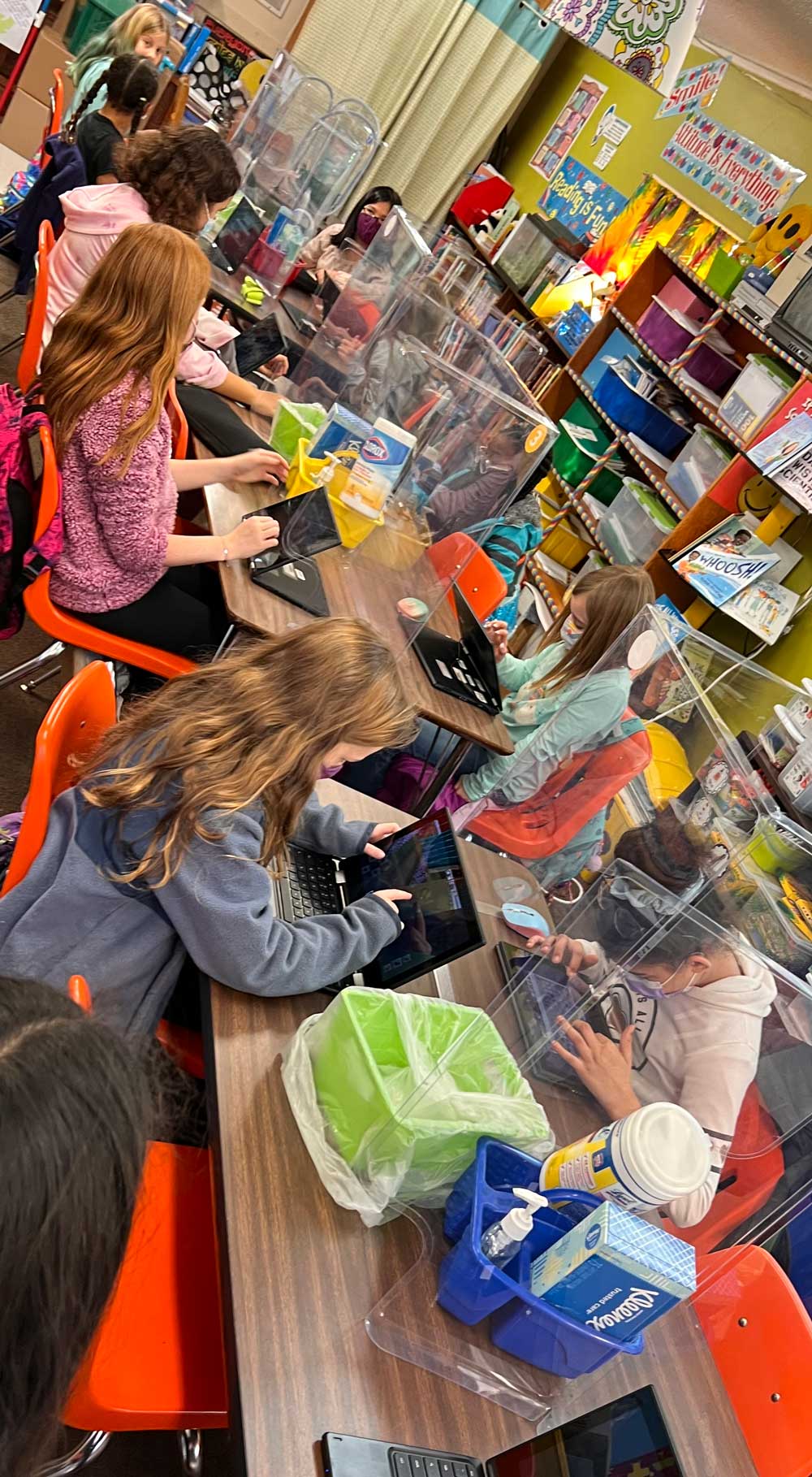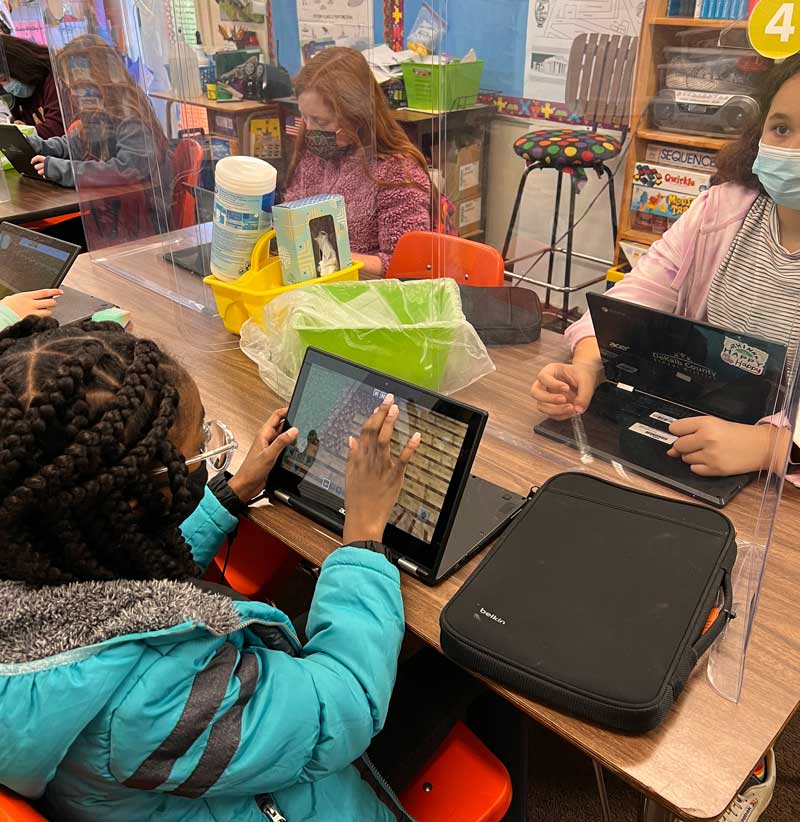New Program Geared Toward Getting Young Girls Interested in Computer Science

While women make up 48 percent of the workforce, their employment has lagged in the field of computer science. According to Pew Research, only 25 percent of computer science positions are held by women. A new effort within our Tucker Cluster schools is aiming to change that.
Girls Who Game uses gaming to develop STEM and leadership skills. The program began in Canada and has since grown to encompass teams across North America. Participants in the program, called “girl champions”, work together with their teams in the world of Minecraft Education Edition to create in-game structures that model solutions to real-world problems. Each of these problems is framed as a mission for the teams to complete as part of a competition. For this year’s competition mission, girl champions were challenged to “activate connectiveness and belonging in [their] own community.”
“All the girls are operating as teams to collaborate, to figure out our needs and our community and bring that to life in the Minecraft world,” Simone Kelly says.
Kelly, who leads the gifted program at Livsey Elementary School, has already been teaching students how to code both in class and through the Girls Who Code program. Girls Who Game explores the flipside of computer science, what she calls “the output.”
“It’s to get them interested and get those minds going using the computer program,” she explains, “and the computer program that we use is Minecraft.”
The Livsey team of 12 fourth- and fifth-grade students has met every Wednesday since September to work on their mission in their Minecraft world. To accomplish their goals, they brainstormed together and then split off into smaller groups to work on different spaces.
“In real life…everybody wouldn’t be working on the same thing…they become the curator, so to speak, of whatever is in that space,” Kelly explains.
While the mission may seem to be the biggest aspect of the program to an outsider, it is far from the program’s only focus. Throughout their time in the program, girl champions learn about a variety of women in STEM such as Dr. Donna Strickland, Katherine Johnson and genetic virologist Dr. Sheila Ochugboju.
Despite the heavy computer science element of the program, Kelly believes that it promotes a variety of learning topics.
“It does involve all of their core learning…standards. They’re working it through and they’re doing it the way we would love for all our learning to take place, right? Solving a problem utilizing what you already know. And if you don’t know, how do you get that information…to deal with the problem?”
Several unexpected problems popped up over the course of the mission. Some of these were due to the constraints of the program.
 “The girls have decided that one of the things is that everything has to be accessible,” Kelly explains. This was a problem given that there are no ramps in Minecraft. Everything is made of cubes. “Some of them decided, well, you know what? There’ll be no stairs ever. So everything is one level.”
“The girls have decided that one of the things is that everything has to be accessible,” Kelly explains. This was a problem given that there are no ramps in Minecraft. Everything is made of cubes. “Some of them decided, well, you know what? There’ll be no stairs ever. So everything is one level.”
Livsey’s objectives as a STEM-certified school came into play.
“Part of our goal is to encourage…all minority groups to get involved in some kind of STEM area,” Kelly explains. “I am fortunate to have not only girls, but I have girls of varying backgrounds and so they’re represented.”
Minority groups are proportionally underrepresented in STEM, per Pew Research. Black and Hispanic populations make up seven percent and eight percent of computer science careers respectively as opposed to 11 percent and 17 percent of the American workforce as a whole.
At Livsey, this year’s mission is now coming to an end, but Kelly is far from finished.
“I’m doing Girls Who Code next,” she explains. “[Girls Who Game] is kind of an all-year thing…I’ll probably do a summer one, but we’ll see.”
With programs like Girls Who Game and educators like Ms. Kelly encouraging interest in STEM fields, the future looks bright for the next generation of computer science professionals.

